
Here’s a recording in a mystery language.
Can you identify the language, and do you know where it’s spoken?

Here’s a recording in a mystery language.
Can you identify the language, and do you know where it’s spoken?
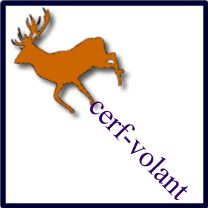
Last night I learnt that the French word for kite is cerf-volant [sɛʁ.vɔ.lɑ̃], or “flying deer/stag”. Cerf-volant also means stag beetle.
Cerf (stag, hart) comes from the Old French cerf (deer), from Latin cervus (deer, stag), from Proto-Indo-European *ḱr̥h₂wós, from *ḱerh₂- (horn) [source].
Actually the cerf in cerf-volant comes from a different root to the cerf meaning stag – from the Occitan sèrp-volanta (flying serpent) [source].
Kites were possibly invented in China in the 6th century BC. They in first appeared in Europe during the 15th century and were in the form of serpents or dragons, which is perhaps why there were called sèrp-volanta [source].
In Chinese a kite is 风筝 [風箏] (fēngzheng): 风 [風] (fēng) = wind, and 箏 (zhēng) is a kind of musical instrument similar to a zither [source], so you could translate that word as “wind zither”.
Do kites have interesting names in other languages?
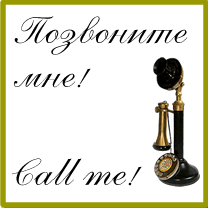
One of my Russian lessons this week included the word вызывать [vɨzɨˈvatʲ], which means to call, cause, summon, send for, and various other things. The combination of sounds in this words appeals to me for some reason, which is way I decided to write about it.
You use it when calling for a service, such as the police or an ambulance – Вызовите полицию! = Call the police! – Вызови скорую помощь! = Call an ambulance!
It can also be used to mean to kindle (interest) as in: вызывать чей-л. интерес – to kindle sb.’s interest.
It comes from вы- [vɨ] (out, out from) and зывать [zɨˈvatʲ], from звать [zvatʲ] (to call, to invite) [source].
If you’re calling or ringing someone on the phone though, you use a different word – звонить [zvɐˈnʲitʲ], which comes from звон [zvon] (ring, jingle, chime) [source].

Here’s a recording in a mystery language.
Can you identify the language, and do you know where it’s spoken?
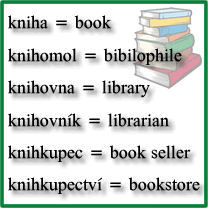
One of the Czech words I learnt this week is knihkupectví [ˈkɲɪxkupɛt͡stviː], which means bookstore / bookshop.
It’s one of a number of words that come from kniha (book), including :
The word kniha comes from the Proto-Slavic *kъniga (book), but beyond that its origins are shrouded in the mists of time. More details.
In Czech it’s easy to see the connection between these words, which makes learning them easier. In English there are book-related words derived from Old English (book), Latin (library) and Greek (bibliophile).
In Welsh most book-related words share a common root:
The word llyfr was borrowed from the Latin liber (book; the inner bark of a tree), which is also the root of the English word library, and words for book in many other European languages [source].
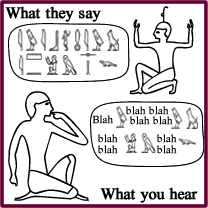
A Danish friend came to visit Bangor this week. He makes the ActualFluency podcast, and is one of the people behind such courses as Italian Uncovered.
We talked a lot about websites and marketing, particularly email marketing, which I haven’t done before, but am going to try.
As well as Danish and English, he also speaks Russian and Hungarian, and has studied other languages. He doesn’t know any Welsh though, and I was curious to find out what Welsh sounded like to him. As I speak and understand Welsh, I can’t get an outsider’s perspective on it. To him it sounded very foreign – something like “blah blah blah blah English word blah blah blah blah”.
When I listen to languages I don’t know, they may sound like that to me. Mostly mysterious sounds with occasional recognisable words. The recognisable words are borrowed from English, or from another language I know, or are the names of places or people.
When listening to languages related to ones I know, I can usually understand more, or at least recognise more words.
What do unknown languages sound like to you?
The hieroglyphs in the image mean “The cat dances when the crocodile hides” (iw ib(A) miw imn msH), and come from Hieroglyphs.net

Here’s a recording in a mystery language.
Can you identify the language, and do you know where it’s spoken?
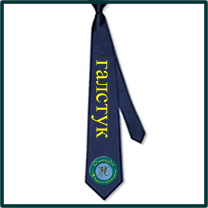
Today I discovered that the Russian word галстук [ˈɡalstʊk] (tie, necktie, neckerchief) was borrowed from the German Halstuch (tie, scarf, cravat, necktie, neckwear, kerchief, bandana, neckerchief neckcloth), or from the Dutch halsdoek (neckerchicef, scarf, shawl).
When words beginning with h are borrowed into Russian, the h becomes г (g), as there is no h sound in Russian. This is probably why I didn’t spot the connection between галстук and Halstuch before.
Halstuch comes from Hals (tail, stem, cervix neck, throat) and Tuch (cloth, sheet, square, blanket, drape, kerchief, towel, scarf, dishcloth).
There are quite a few other Russian words borrowed from German, including вахтёр (porter, janitor, watchman) – from Wächter, картофель (potatoes) – from Kartoffel, and клавир (keyboard instrument) – from Klavier.
Sources: Wiktionary, bab.la

Today some friends and I started wondering why the small mats you might place under mugs and glasses are called coasters. Do they have anything to do with coasts, and if not, where does the word come from?
According to Wiktionary, the word coaster come from coast + -er, and is possibly related to the Middle English coster (ornamental wall or bed hanging), which comes from the Anglo-Latin costera (side, coast, curtain).
The word has a number of different meanings:
According to the Online Etymology Dictionary, coaster was first used in English in the 1570s to mean “one who sails along coasts”, and was used to refer to boats that sail in coastal waters from the 1680s.
It was used to refer to a bottle-coaster, or “low, round tray used for a decanter”, from 1874. Such a tray was originally on wheels and coasted around the table to each guest in turn. Which is possibly the origin of the name. It was being uesd to refer to a drink mat by the early 20th century.
Such things are called beer mats in pubs. What are they called in other languages?

Here’s a recording in a mystery language.
Can you identify the language, and do you know where it’s spoken?